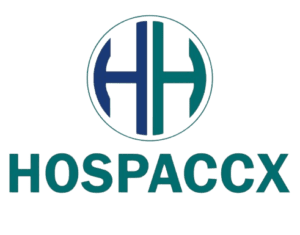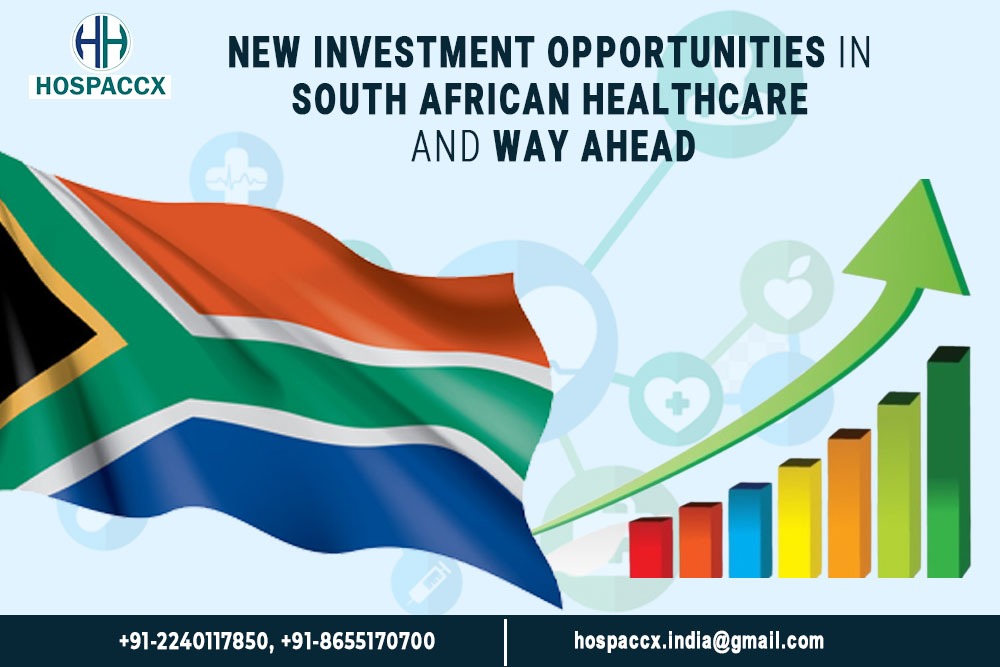NEW INVESTMENT OPPORTUNITIES IN SOUTH AFRICAN HEALTHCARE AND WAY AHEAD
South Africa has one of the most active healthcare systems in the world, with both public and quickly expanding private systems. With a 60 million population, it has one of the continent’s strongest economies. This generates many opportunities for Swiss companies, where they can offer innovative technologies to meet healthcare needs.
Given that the private sector provides around half of the healthcare products and services offered in Africa, investment in this sector is essential. South Africa’s investment in healthcare is increasing despite the coronavirus; it is making efforts to enhance the effectiveness and efficiency of the public healthcare system in South Africa’s use of medications.
ECONOMY OF SOUTH AFRICA
The economy of South Africa is anticipated to increase by 2.1% in 2022, returning to its pre-COVID-19 pandemic level. The healthcare industry will expand slowly over the following ten years, reaching a value of US$47.1 billion by 2027.
The medical technology industry is developing in South Africa and it will impact the market steadily and support medical work and learning, reaching $1.8 billion in 2023. Data systems will increase consumer and provider communication, illness surveillance, and e-health support system. Data gathering and analysis for planning, management, and responding to health needs will be made easier by technology.
BUDGET ALLOCATION 2022
In order to account for inflation, the 2022 budget only suggested a 1.2% rise in healthcare workers’ pay over the next three years. This translates into a median yearly decrease of 3.3% in healthcare worker compensation costs over the medium term.
R1.9 billion allocated to initiatives including the delivery of chronic medications, the enhancement of patient information systems, and the computerised management of drug supplies.
Realistically, it is anticipated that the budget for District Health Programmes would decrease by 4.2 % annually for the following three years after taking into account the reallocation of about R300 million to the NHI grant due to its absorption of cancer and mental health services. This implies that over time, less money will be spent on TB treatment, ARV distribution, and HIV/AIDS prevention and treatment.
The 2022 Budget suggests a nominal increase of 54% in funding for NHI over the medium term, indicating a readiness to progress towards NHI. This infusion includes R8.8 billion (of which R6.5 billion is provided by the NHI indirect grant), R4.4 billion for health infrastructure, and R1.9 billion for programmes like the distribution of chronic medications, the enhancement of patient information systems, and the electronic management of medicine inventories.
GOVERNMENT INITIATIVES
By 2030, new incidences of cancer are expected to increase by 70% across the continent as a result of population expansion and an ageing population. Southern Africa will host the establishment of the cancer centre of excellence. One of the many flaws in Africa’s health systems that the COVID-19 epidemic has shown is the continent’s extremely high out-of-pocket (OOP) health expenses.
The government intends to spend $140 million to rebuild its supply systems and health infrastructure, which were both severely damaged by the viral epidemic.
The National health laboratory services (NHLS) initiative is budgeted for R8.8 billion in the fiscal year 2022–2023 in order to achieve equitable service coverage through the deployment of Point of Care Testing, Digital Pathology, and testing equipment modernization.
HEALTHCARE INFRASTUCTURE
South Africa is expected to become a high-income country within the next decade. Economic expansion will increase the government’s domestic revenue, which may fund healthcare workforce development and medical education. R21.3 billion will be transferred to provincial health department over the MTEF period through the health facility revitalization grant.
These incentives are intended to speed up the building, upkeep, renovation, and maintenance of new and existing health system infrastructure, as well as the provision of medical equipment necessary to provide healthcare services. Through the indirect funding, the department hopes to build or renovate 92 health facilities over the next several years, in addition to performing extensive maintenance on or remodelling of 200 other institutions. These funds are allocated to the Hospital Systems program’s Health Facilities Infrastructure Management sub-programme.
PRIVATE INITIATIVES
IFC recently announced a partnership with Avacare Global to assist its business expansion of the production and distribution for various pharmaceutical and healthcare consumable products, including generic drugs in Africa. The goal of this partnership is to increase the access to high quality, affordable healthcare products and services across Africa. The Avacare Health Group will receive a $28.6 million equity investment from IFC as part of the agreement to assist the firm in growing its manufacturing base in East Africa both organically and through acquisitions. The investment will strengthen its manufacturing capacities in order to meet the rising local demand for pharmaceuticals and vaccines in Africa.
The other project is for the development of a 250-bed medical center of excellence in a West African country. It will provide private specialist care. Its sponsors are seeking $100 million in investment. Tertiary health care services are highly specialised referral services provided at central and tertiary hospitals. There are only 31 of these hospitals in the nation due to their specialized nature, with the majority of them located in metropolitan regions. The national tertiary services grant, which receives funding as part of the Hospital Systems programme, will get R14.3 billion in 2022–2023, R14 billion in 2023–2024, and R14.7 billion in 2024–2025. A portion of the funds is put aside for strengthening tertiary services in the underdeveloped provinces in order to increase equality and decrease the need for interprovincial referrals.
DIGITAL HEALTH
In 2022, the digital health industry is expected to generate US$584.60 million in revenue. Market volume is predicted to reach US$886 million by 2026, with revenue forecast to expand at a 10.95% annual rate (CAGR 2022-2026).
A Dutch firm called Spectator Health provides digital solutions so that medical practitioners may easily obtain the data they need to effectively manage and monitor patients and decide how best to treat them. The healthcare industry produced definite business leads and actual opportunity development. Spectator established new contacts and accelerated great opportunities in South Africa to implement TeleHealth technology in the public and private sector, covering all stages of the patient journey from prevention, positive health, primary care, chronic care, and elderly care services.
PHARMACEUTICALS AND MEDICAL DEVICES
A $49 million deal will be made in order to build a pharmaceutical and biomedical centre in West Africa. The centre will include a logistical platform, research and development facilities, and an academic institution that might assist the area and the rest of the continent in the creation of vaccines, drugs, and other medical products. The African Continental Free Trade Area is also expected to advance the integration of African markets and standards for pharmaceuticals and other goods.
The South African Medical Research Council recently conducted a research which states that South Africa is well-positioned to grow its production of medical devices. However, challenges include a fragmented market and little R&D spending, particularly in large corporations. South Africa must spend in R&D if it wants to enhance indigenous production of medical devices like surgical implants and surgical masks.
Most South African companies that produce medical devices barely utilise 25% to 75% of their total production capability. One of the major medical device marketplaces in the Middle East and Africa is found in South Africa. Additionally, the government provides financial aid to companies with a technological focus, such as an R&D tax credit. Government research organisations and domestic medical product businesses both claim that there is more manufacturing capacity
MEDICAL TOURISM
The medical tourism market is anticipated to reach USD 1.35 billion by 2027 from USD 0.90 billion in 2022, expanding at a CAGR of 8.5% between 2022 and 2027. As travel restrictions are loosened in 2022, key emerging nations will profit from resurgence in medical tourism, which will result in near-term growth in the markets for healthcare and medical device items. Following the two years of disruption brought on by the Covid-19 pandemic, tourist numbers will recover in 2022, but they will still be below pre-pandemic levels.
The market in this area is driven by significant expenditures made by the government in the hospital sector to provide improved treatment options for the population. The demand for the medical tourism industry in South Africa is impelled by the growing number of individuals suffering from various health conditions.
The market is expanding more quickly as people are becoming more aware of the various therapeutic options available. The industry has opportunities for growth due to the development of cutting-edge medical technology.
Another opportunity for the industry to expand is the accessibility of qualified specialists in developed nations. As a result of the government’s strict laws and regulations designed to improve hospital healthcare services, the demand in this sector is increasing.
CONCLUSION
The healthcare system in Africa has undergone more changes and received more attention than at any other time in the past 50 years. In fact, it is predicted that by 2030, the African healthcare market would be worth $259 billion. Despite the fact that these patterns point to a profitable market potential for the private sector, an unregulated African health care system may result in more Africans living in poverty. Therefore, African nations have a chance to build on the success of health finance in coming years to increase the sector’s resilience and the continent’s population.
For more information about the Country and Healthcare opportunities in South Africa, you can visit the company website on www.hospaccxconsulting.com or contact us directly.
Related Team Members










